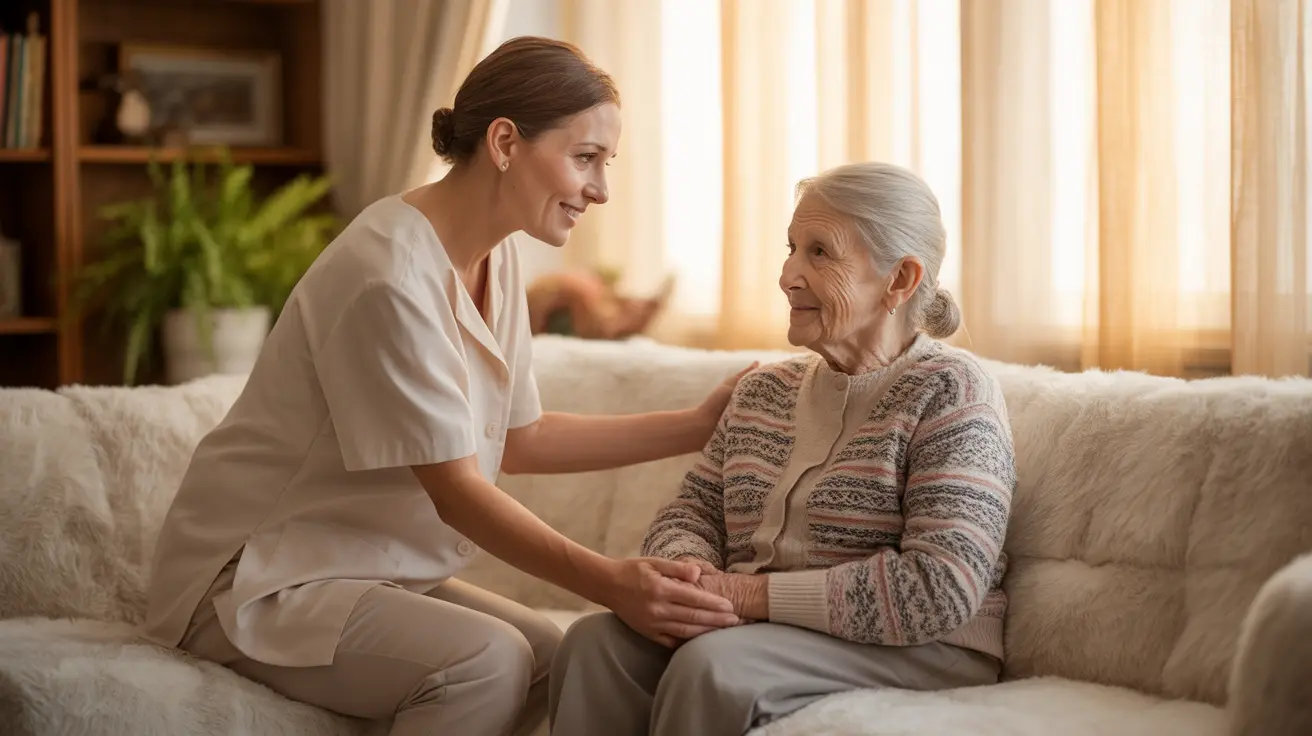Understanding and being prepared for senior first aid emergencies is crucial for caregivers, family members, and seniors themselves. As our loved ones age, their medical needs become more specific, and knowing how to respond effectively in various situations can make a significant difference in outcomes.
This comprehensive guide covers essential first aid knowledge for seniors, from handling common emergencies to preventing accidents and maintaining a well-stocked first aid kit. Let's explore the key aspects of senior first aid to ensure you're prepared for any situation.
Common Senior Medical Emergencies and Response Protocols
Seniors face unique medical challenges that require specific first aid approaches. Understanding these common emergencies and knowing how to respond can be lifesaving:
Falls and Mobility-Related Injuries
Falls represent the most frequent emergency among seniors. If you find a fallen senior:
- Check for consciousness and breathing
- Don't move them if you suspect head, neck, or spine injury
- Look for visible injuries or bleeding
- Monitor for signs of confusion or disorientation
Cardiovascular Emergencies
Heart-related issues require immediate attention. Watch for:
- Chest pain or pressure
- Shortness of breath
- Sudden weakness
- Cold sweats
- Irregular heartbeat
Treating Minor Injuries in Seniors
Cuts and Skin Tears
Elderly skin is more delicate and prone to injury. When treating cuts or tears:
- Clean the wound gently with mild soap and water
- Apply antibiotic ointment if there's no known allergy
- Use non-adhesive dressings specifically designed for sensitive skin
- Monitor for signs of infection
Bruises and Contusions
Seniors bruise more easily due to thinner skin and blood-thinning medications. For bruise care:
- Apply cold compresses for the first 24-48 hours
- Elevate the affected area when possible
- Watch for unusual swelling or hardness
Essential Components of a Senior First Aid Kit
A well-prepared senior first aid kit should contain:
- Non-adhesive bandages and dressings
- Antibiotic ointment
- Sterile gauze pads
- Medical tape designed for sensitive skin
- Blood pressure monitor
- Glucose testing supplies if diabetic
- Emergency contact information
- List of current medications
- Small flashlight
- Disposable gloves
Emergency Response Guidelines
Knowing when to call emergency services is crucial. Contact 911 immediately if you observe:
- Chest pain lasting more than a few minutes
- Difficulty breathing or shortness of breath
- Sudden confusion or altered mental state
- Severe bleeding that doesn't stop with direct pressure
- Signs of stroke (facial drooping, arm weakness, speech difficulties)
- Loss of consciousness
Injury Prevention Strategies
Prevention is key in senior safety. Implement these measures:
- Install grab bars in bathrooms
- Ensure adequate lighting throughout the home
- Remove trip hazards like loose rugs
- Keep frequently used items within easy reach
- Maintain regular exercise for strength and balance
- Schedule regular vision and hearing checks
Frequently Asked Questions
What are the most common first aid emergencies for seniors and how should they be handled?
The most common emergencies include falls, cardiovascular issues, and cuts/skin tears. Handle these by assessing the situation calmly, checking vital signs, and calling emergency services when necessary. For minor injuries, use appropriate first aid techniques while being gentle and mindful of sensitive elderly skin.
How should I treat cuts, scrapes, and skin tears on an elderly person at home?
Clean the wound gently with mild soap and water, apply antibiotic ointment if appropriate, and use non-adhesive dressings designed for sensitive skin. Monitor the wound for signs of infection such as redness, warmth, or unusual drainage.
What items should I include in a senior first aid kit for home or caregiver use?
Include non-adhesive bandages, sterile gauze, medical tape for sensitive skin, antibiotic ointment, blood pressure monitor, emergency contact information, current medication list, and basic first aid supplies like disposable gloves and scissors.
When should I call 911 or seek emergency help for a senior after a fall or injury?
Call 911 if there's loss of consciousness, suspected head/neck injury, severe bleeding, chest pain, difficulty breathing, or signs of stroke. Also seek emergency care if the person is unable to move or experiencing severe pain.
What are the best ways to prevent falls and common injuries in older adults?
Prevent injuries by removing hazards from the home, installing safety features like grab bars, ensuring good lighting, maintaining regular exercise for strength and balance, and scheduling regular health check-ups including vision and hearing tests.




